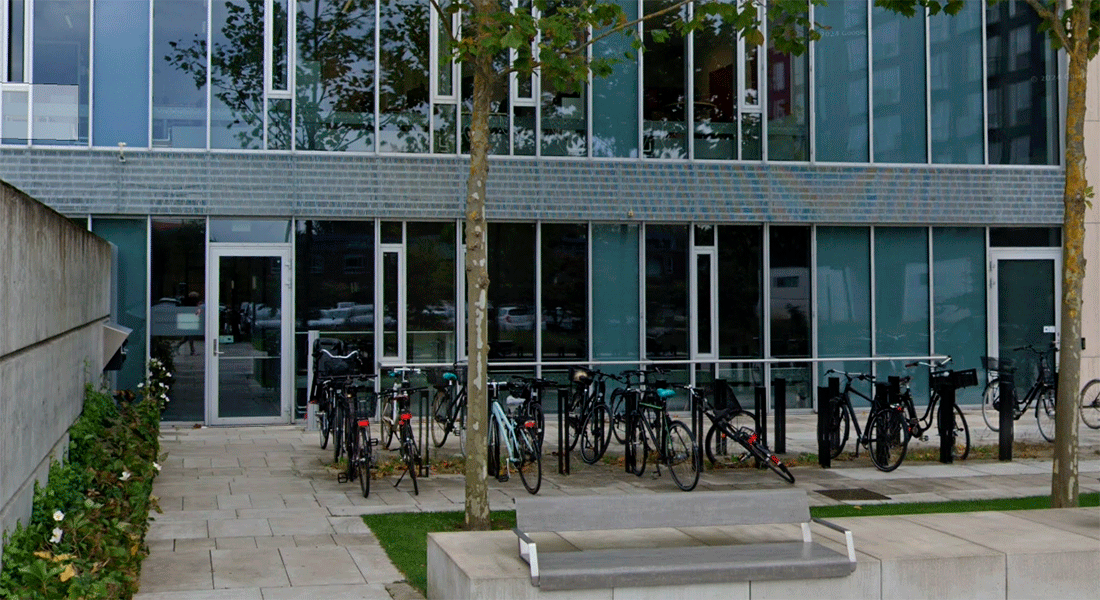Centre for the Study of Global Nationalisms (CSGN)
Nationalism is back – or never has been gone – and nowadays often takes new unexpected forms which we should take seriously and examine carefully. We are familiar with this phenomenon in Europe and the United States, but nationalisms also exist as a powerful force with original ideologies in the so-called non-Western World.

The Centre for the Study of Global Nationalisms (CSGN) engages critically with these complex and diverse expressions of national thought and action by exploring ideas, discourses and media, as well as the political practices and realities they evoke and produce. In a truly transdisciplinary perspective, we bring together researchers from the Humanities and Social Sciences and combine the necessary theoretical knowledge, historical discernment, regional expertise and language proficiency which is deeply needed to scrutinize in a comparative perspective the variety of nationalisms in their specific contexts, traditions, transformations and global entanglements.
In our research, we follow up closely on contemporary nationalisms such as global new right ideologies, movements and politics on the rise – not only in Europe and the United States but also in Russia, Latin America and South Asia, among other places. The world has not experienced similar growth since the 1930s, as Enzo Traverso remarks in his famous book on Postfascism. Going beyond established explanatory concepts like populism, authoritarianism and xenophobic identitarianism, we pay special attention to often overlooked antimodern and de-secularizing tendencies. Our research also revisits the past of nationalism and nation-building with progressive and emancipatory objectives.
The concept of the nation has been crucial for defining the structure of the modern world and its prevailing identities and continues to be a transhistorical substrate. We learned in the 21st century that the national idea resisted transnational Globalization and Europeanization – both now heavily challenged processes. In changing ways and with a new potential, the nation continues to be a core factor in new – or newly resurged or reinvented – ideologies, discourses and political practices and movements. These global dynamics of evolving nationalisms erode (more than openly attack) the only apparent “stable normality” of liberal democracies with already perceptible implications for the future of the global order.

To understand better these new global nationalisms and their roots in the past, across languages and regions, is an urgent task to which this Centre is committed to contribute through research and outreach. Hosted by the Department of English, Germanic and Romance Studies, the Centre is designed as an interdisciplinary hub for scholars working on nationalism at the University of Copenhagen and other Danish universities and research institutions, together with partners in Sweden and Germany. New collaborations are under preparation with research institutions in Norway (Centre for Research on Extremism - C-REX), Malaysia (National University) and Brazil (Observatory of the Extreme Right).
- Associate professor Georg Walter Wink, Department of English, Germanic and Romance Studies (director)
- Associate professor Mogens Pelt, Saxo Institute (co-director)
- Professor Janus Mortensen, Centre for Internationalisation and Parallel Language Use (CIP)
- Postdoc Nicolaj von Eggers Mariegaard, University of Copenhagen/Aarhus University
- Professor Rasmus Glenthøj, University of Southern Denmark
- Professor Gabriella Elgenius, University of Gothenburg
- Senior Researcher Joana-Isabel Duyster Borreda, University of Heidelberg, Stiftung Ebert Gedenkstätte
Far right thought in a global perspective: traditionalist reactions to Western liberal modernity
Coordinator: Georg Wink, Department of English, Germanic and Romance Languages
This project is part of the HUM:Global Flagship initiative and coordinated by Georg Wink. The objective is to strengthen the investigation of far-right ideologies by exploring their still less known traditionalist and religious-spiritual dimensions. Previous research has shown that these tend to oppose “degenerated” Western progress and modernity but not how these tendencies manifest themselves beyond the European and US contexts and in relation to Anti-Western decoloniality. In a new approach and building on the area and language expertise of the Centre’s researchers as well as international collaborators, the project focuses on regions such as Latin America, Turkey, the Middle East and South/Southeast Asia. Research will scrutinize the far right’s antimodernist canon to find out how in each context these texts are received, appropriated, reinterpreted, transformed and how they draw on religious and other traditions. Based on this, researchers will analyze the metapolitical strategies and techniques (including the use of social media) through which these ideologies are promoted as well as examine the transfer of ideas through intellectual networks of far-right ideologues in and between these regions.
During the academic year 2025/2026, the project will consolidate and expand the research group with support of an advisory board. Through invited expert talks, seminars and internal workshops this new network will create awareness for the topic of “globalized Anti-Modernism”, explore and delimit this broad field, elaborate a research plan and identify funding opportunities.
Associated researchers:
- Tim Rudbøg (University of Copenhagen, Department for Cross-Cultural and Regional Studies)
- Mikhail Suslov (University of Copenhagen, Department for Cross-Cultural and Regional Studies)
- Mikkel Bolt (University of Copenhagen, Department of Arts and Cultural Studies)
- Jun Liu (University of Copenhagen, Department of Communication)
- Atreyee Sen (University of Copenhagen, Department of Anthropology)
- Somdeep Sen (Roskilde University, Department of Social Sciences and Business)
- Manni Crone (Danish Institute for International Studies DIIS)
- Hjalmar Falk (University of Gothenburg, Facvulty of Education)
- Gabriella Elgenius (University of Gothenburg, Department of Sociology and Work Science)
Nation, Geopolitics and Imperialism
Coordinator: Mogens Pelt, Saxo Institute
Associated researchers:
Nationalism, nostalgia, and the resurgence of the Radical Right
Coordinator: Gabriella Elgenius, University of Gothenburg
The cluster on nationalism, nostalgia, and the resurgence of the Radical Right addresses the realignment processes from center-left to the populist nationalist and radical right in Europe and elsewhere. This important societal change has had significant consequences for governance and policy making. Since populist radical right parties tend to side with center-right parties the realignment and increased support for the populist radical right have contributed to shifting policies toward the right. Components of ethnic nationalism, populism and nostalgia stand out as significant. Nostalgia – the history of decline and loss – is utilized by proponents of both the right and the left, and the ethnic substance of nationalist nostalgia is of particular importance alongside its populist elements. Nationalist nostalgia capitalizes on loss, idealization, and resentment and its contested nature may be brought out through anti-migrant frames. A central mechanism is the juxtaposition and unfavorable comparison between an idealized glorious past, a decaying present, and the creation of a utopian future, that in many ways resemble Christian narratives of fall and redemption. Comparative research and the use of different methodologies and mixed methods are needed to fully explore various dimensions and components of the Radical Right.
Responsible researcher
Gabriella Elgenius is Professor of Sociology at the University of Gothenburg, and she is the Co-Director of the Swedish Research Councils Graduate School of Migration and Integration (2023 -2028). Elgenius’ research is comparative, multi-cited, multi-, and mixed method within two main fields political sociology and migration and integration studies. She is working on several projects on the resurgence of the Radical Right in Europe, ethnic nationalism, and nostalgia, and on migration and integration tackling the multi-dimensional nature of integration, civil society in conditions of socio-economic challenge and diversity and Citizen or Community Research (Swedish Research Council VR, Forte, Formas, ESRC, JPI Urban Europe). Elgenius has also been researching diaspora discourse, national museums and nation-building and national symbolism (British Academy, John Fell, RJ, AHRC, ECR). She was a Marie Curie Fellow at the London School of Economics 2000-2005 and later received a British Academy Fellowship at the University of Oxford (2007-2011). She is currently a Fellow of the Royal Society of Arts and Associate Member of the University of Oxford.
The Republic of Newsletters: International Republicanism in the Making of Democratic Political Cultures, 1815-1840
Coordinator: Nicolaj von Eggers Mariegaard (DFF Sapere Aude Project at Aarhus University)
The project is about the emergence of democratic culture in the early 19th century across the Atlantic and Mediterranean world and the role international exchange of ideas played in it. It examines the transition from what has been called "the republic of letters", which was an international exchange of ideas between Enlightenment philosophers in the 18th century, to what I will call "the republic of newsletters", where new political ideas are particularly carried forward by a new type of intellectuals such as journalists who are in close international contact with each other. The project explores how ideas travel, and how new and revolutionary political systems emerge with inspiration from each other. The project also focuses on the voices of the excluded (women, enslaved, landless) and their struggle for inclusion. The countries studied are Haiti, Colombia, France and Greece. The expected results will give us a more nuanced picture of modern democracy and its history, especially by focusing on the role that often overlooked actors such as women, the enslaved and the landless played in the formation of democracy. They will also demonstrate the important role of international connections and mutual inspiration across borders for the rise of modern democracies.
Nationalism and Language – Sociolinguistic Perspectives
Coordinator: Janus Mortensen, Centre for Internationalisation and Parallel Language Use (CIP)
- Nikolaj Bjerggaard Olesen (University of Copenhagen, Department of English, Germanic and Romance Studies)
- Benedikte Brincker (University of Copenhagen, Department of Sociology)
- Jun Liu (University of Copenhagen, Department of Communication)
- Charlie Krautwald (University of Copenhagen, Saxo Institute)
- Tea Sindbæk Andersen (University of Copenhagen, Department of Cross-Cultural and Regional Studies)
- Jakob Dreyer (University of Copenhagen, Department of Political Science)
- Tim Rudbøg (University of Copenhagen, Department for Cross-Cultural and Regional Studies)
- Mikhail Suslov (University of Copenhagen, Department for Cross-Cultural and Regional Studies)
- Mikkel Bolt (University of Copenhagen, Department of Arts and Cultural Studies)
- Atreyee Sen (University of Copenhagen, Department of Anthropology)
- Somdeep Sen (Roskilde University, Department of Social Sciences and Business)
- Manni Crone (Danish Institute for International Studies DIIS)
- Hjalmar Falk (University of Gothenburg, Faculty of Education)
18 November 2024, 10:00-12:00 at CSN
General Assembly of all associates and affiliates.
The agenda included the appointment of the new steering committee members; discussion, priorization and definition of future research themes; research group consolidation and organization; and planning of a strategy for joint funding applications.
19 September 2024 (online)
Meeting and reconstitution of the Steering Committee.
Coordinator
Georg Walter Wink, Associate Professor, Department of English, Germanic and Romance Studies, email: georg.wink@hum.ku.dk
Find us
South Campus, KUA3, Njalsgade 76a, room 4B-0-58.
